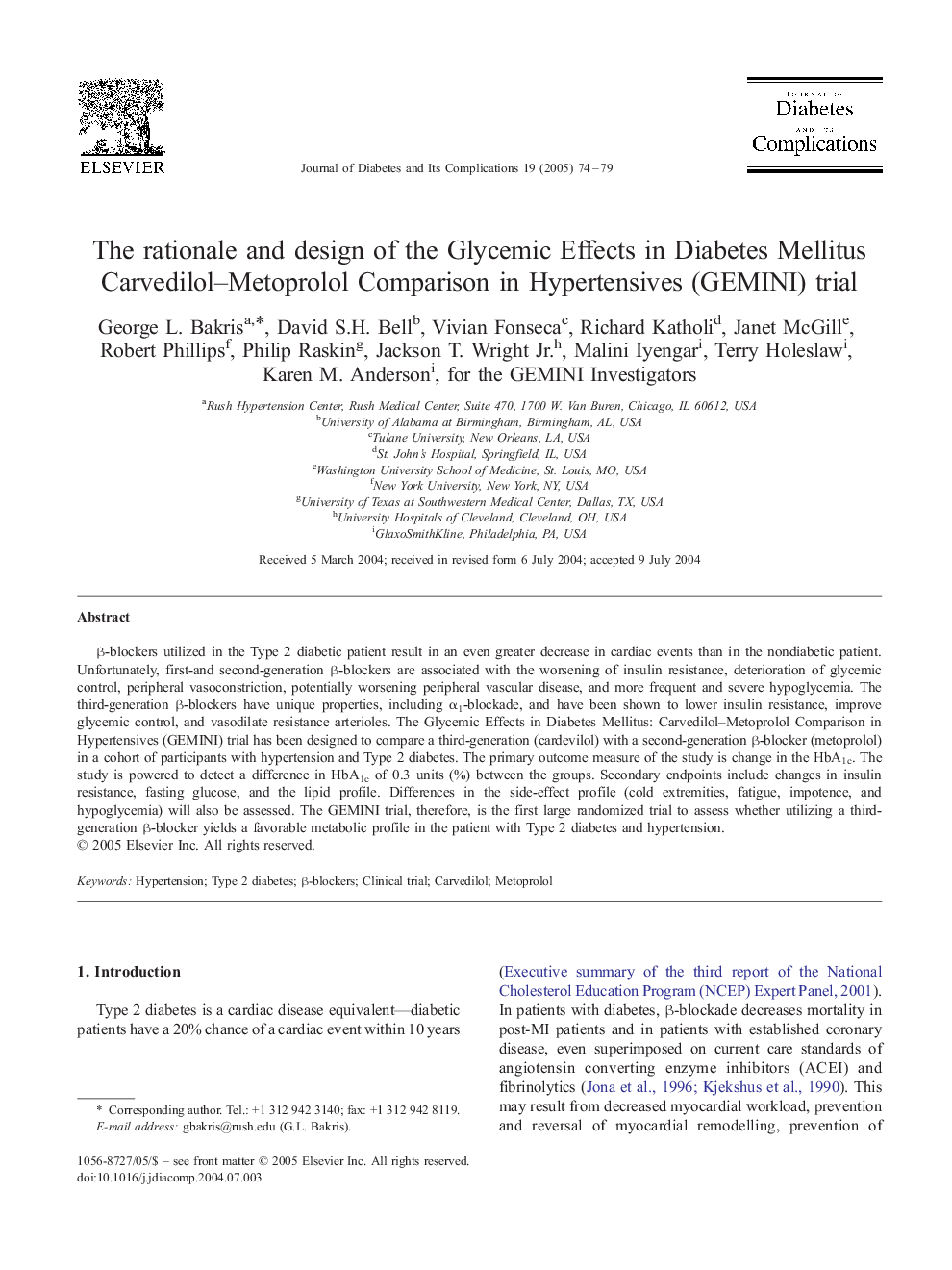| Article ID | Journal | Published Year | Pages | File Type |
|---|---|---|---|---|
| 9115188 | Journal of Diabetes and its Complications | 2005 | 6 Pages |
Abstract
β-blockers utilized in the Type 2 diabetic patient result in an even greater decrease in cardiac events than in the nondiabetic patient. Unfortunately, first-and second-generation β-blockers are associated with the worsening of insulin resistance, deterioration of glycemic control, peripheral vasoconstriction, potentially worsening peripheral vascular disease, and more frequent and severe hypoglycemia. The third-generation β-blockers have unique properties, including α1-blockade, and have been shown to lower insulin resistance, improve glycemic control, and vasodilate resistance arterioles. The Glycemic Effects in Diabetes Mellitus: Carvedilol-Metoprolol Comparison in Hypertensives (GEMINI) trial has been designed to compare a third-generation (cardevilol) with a second-generation β-blocker (metoprolol) in a cohort of participants with hypertension and Type 2 diabetes. The primary outcome measure of the study is change in the HbA1c. The study is powered to detect a difference in HbA1c of 0.3 units (%) between the groups. Secondary endpoints include changes in insulin resistance, fasting glucose, and the lipid profile. Differences in the side-effect profile (cold extremities, fatigue, impotence, and hypoglycemia) will also be assessed. The GEMINI trial, therefore, is the first large randomized trial to assess whether utilizing a third-generation β-blocker yields a favorable metabolic profile in the patient with Type 2 diabetes and hypertension.
Related Topics
Life Sciences
Biochemistry, Genetics and Molecular Biology
Endocrinology
Authors
George L. Bakris, David S.H. Bell, Vivian Fonseca, Richard Katholi, Janet McGill, Robert Phillips, Philip Raskin, Jackson T. Jr., Malini Iyengar, Terry Holeslaw, Karen M. Anderson, for the GEMINI Investigators for the GEMINI Investigators,
